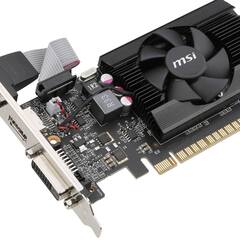Unpatchable Bug in Apple M1, M2 and M3 silicon
-
Featured Topics
-
Topics
-
0
-
2
-
1
-
shift8 ·
Posted in Networking2 -
0
-
2
-
Premoz1 ·
Posted in General Discussion5 -
5
-
2
-
Cheki ·
Posted in Troubleshooting2
-
-
play_circle_filled

Latest From ShortCircuit:
I tried 20 influencer foods, here are the best… and the worst…

















Create an account or sign in to comment
You need to be a member in order to leave a comment
Create an account
Sign up for a new account in our community. It's easy!
Register a new accountSign in
Already have an account? Sign in here.
Sign In Now